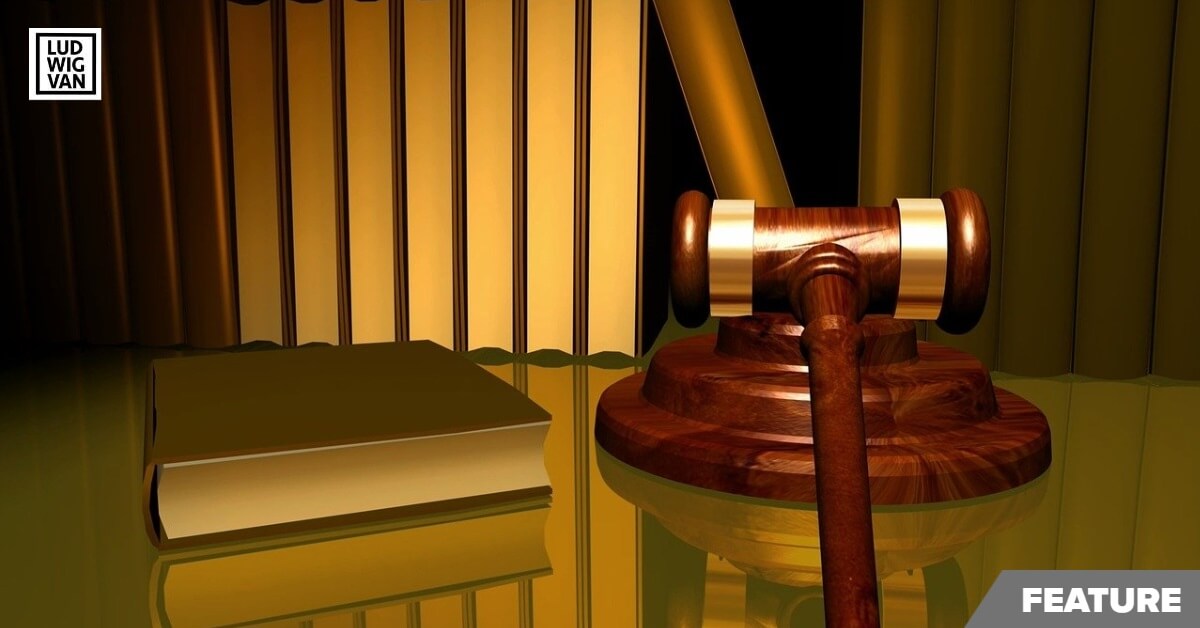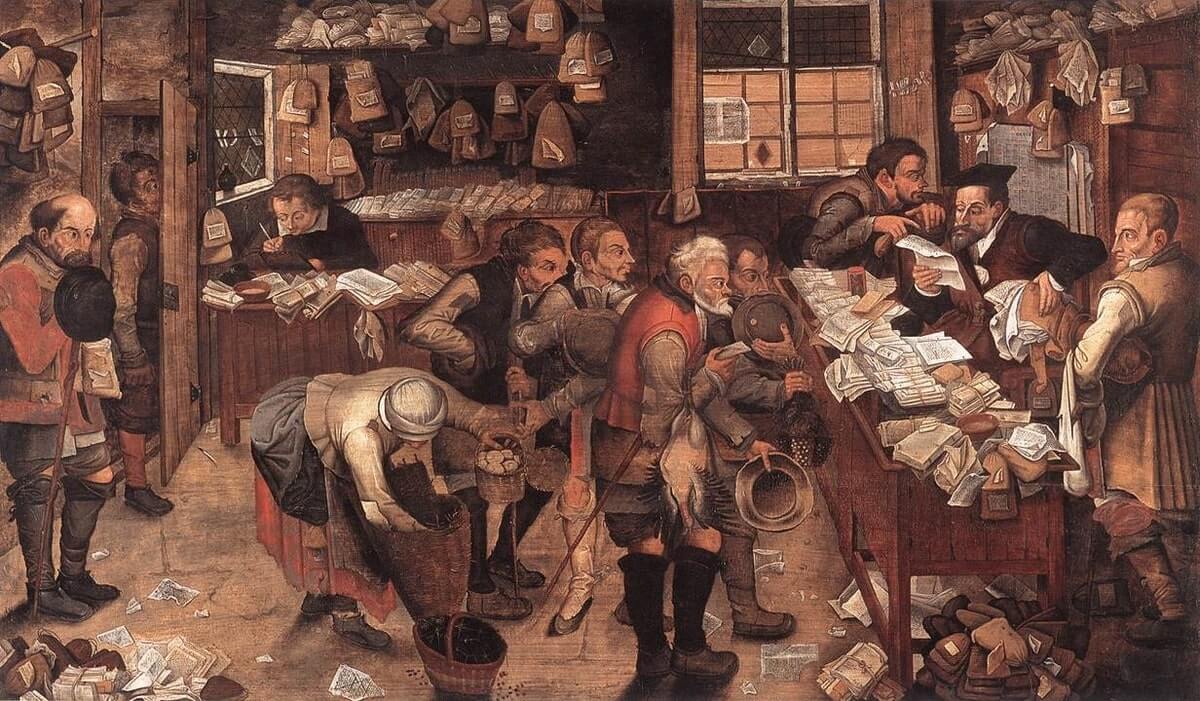
The law, music and artistic creation can become a thorny knot of complex issues, mired in lack of understanding and access. A recent report calls for a network of legal clinics to address the situation, made even more acute recently with the COVID-19 lockdown, and the devastation it has wreaked on the arts and culture sector.
To say that the music business has undergone a period of upheaval that is continuing to the present day — with no end in sight — is to understate the massive sea change that affects literally all musicians from the ground up.
Now More Than Ever: Towards a National Network of Legal Clinics for the Arts is the name of a recently published report that calls for an expansion of the patchwork string of pro-bono clinics that currently specialize in arts and culture law nationally. The report was spearheaded by the fledgling National Network of Legal Clinics for the Arts, consisting of Artists’ Legal Outreach (ALO) in Vancouver, Artists’ Legal Advice Services (ALAS) in Toronto and the Artists’ Legal Services Ottawa (ALSO) working in collaboration with Cultural Pluralism in the Arts Movement Ontario (CPAMO). There are three other such legal clinics in Canada.
The initiative is the continuation of an ongoing effort. “They’ve been trying to do this for years.” charles c. smith is Executive Director of Cultural Pluralism in the Arts Movement Ontario (CPAMO), and also a poet, playwright, and author. The existing clinics operate at full capacity. “They were inundated,” smith says. “Demand outstrips the capacity.”
The report references a Canada Council for the Arts survey is based on the responses of 1,154 people from across the country. Of those, 874 were artists, 225 arts organizations, and another 55 lawyers. Now More Than Ever’s recommendations don’t come as a surprise, but reinforce the need for legal help for the arts sector. The report identified several areas of urgent concern.
“You know those terrible contracts legendary stars like Springsteen signed when they were starting out? Almost every writer, musician, and artist I know signed (at least) one of those when we were starting out because we didn’t have an agent yet, certainly couldn’t afford a lawyer and were so excited to share our work with the public that we would have signed anything.” (Mark Leiren-Young, a long time Victoria, BC-based author and performer is quoted in the report.)
There is a big gap in what the report is calling legal literacy. Many artists are simply not aware of the multiple legal issues involved in their work. Martha Rans is Legal Director of Artists’ Legal Outreach (ALO) in Vancouver. She comments in the new report.
“The legal needs sought by artists and arts organizations are incredibly specialized,” she said. “Most artists have difficulty navigating complex contracts and copyright issues — they find their work taken without permission and often don’t know where to turn. Since the COVID-19 crisis began, we have heard from a number of artists left out in the cold when a gallery is closed without notice, agreements cancelled without compensation, and commercial tenancies in jeopardy (including the closure of artist studios with less than 30 days notice).”
Even where they are available, legal clinics operate largely under the radar due to lack of the resources needed to both spread the word, and educate artists about the complex issues they face. Most arts legal clinics are staffed by volunteers.
“It’s becoming so incredibly complex,” smith notes. “It’s quite a unique situation.”

A New Era Brings New Issues
The report resulted in a list of 22 recommendations, among them, the creation of educational materials related to copyright laws for artists, since those laws are complex and poorly understood.
“We cannot control who shares our work, or get paid for the “shares”.
“Almost everyone has a phone with a camera and can record our live performances and “share” them on their social media; artists are not paid for their work and have no control over its use.”
Adapting to digital markets, another of the report’s recommendations, is a concern echoed by the study’s authors. The COVID era, where virtual streaming has become an important way for performing artists to stay connected with their audiences, has made that suggestion even more important. How can musicians and other artists be fairly compensated when the ability to copy and use their work anywhere in the world has become so easy? And, what measures can be taken when that happens?
It’s About Access And Cost
The six clinics currently delivering low cost or free legal services to artists in Canada are located, predictably, in urban areas, which already limits accessibility to the arts community at large. The cost of legal services is also prohibitive.
“Most artists are working below the poverty line and can’t afford an entertainment lawyer along the way.”
“It is cost prohibitive. You could easily blow a whole budget on getting contracts professionally drawn up.”
The report also notes that specific legal issues are raised that echo some of the recommendations of the Truth and Reconciliation Reports. The common practices of First Nations artists don’t always slide easily into the slots defined by our Westernized legal framework. Major issues faced by Indigenous artists include cultural appropriation in the context of copyright law and intellectual property rights, and the protection of the communal cultural wealth and traditions, and distribution of its wealth.
smith notes that Indigenous artists and artists of colour are particularly disadvantaged, in that they typically already operate with less funding and support, with many located well outside the urban areas where the clinics operate.
The COVID-19 Effect
Lately, of course, the concern has shifted to the immediate pressures of the COVID-19 lockdown, and its shutdown of the performing arts sector. The global pandemic has resulted in a collective loss of income that is nothing short of catastrophic. Along with contract cancellations, landlords are evicting artists and organizations for non-payment of rent, and insurance won’t cover their losses.
The report notes that much of the evidence of the effects of COVID are anecdotal at this point, but they cover a wide range of issues and legal needs, including human rights abuses along with contract and employment law, and commercial rent relief.
According to a national survey by the Canada Council for the Arts, 42% of responding artists were applying to CERB, the Canada Emergency Response benefits, and 41% of arts organizations intended on applying for the wage subsidy program.
COVID has led to an unprecedented wave of gig, festival, and other contractual cancellation. From the artist’s perspective, and since there is no provision in labour laws per se for contractual gigs, it boils down to contract law.
Cancellation policies in artist contracts vary widely, and often include the venue’s right to cancel a show for any reason without liability. What happens if a venue wants to go ahead, but the artist has health concerns? Is there a right of refusal? What about any artistic partnerships or collaborations — what if one artist wants to proceed, and the other does not? Many issues are not easily solved.

An Urgent Need For Legal Support
Paul Sanderson, Co-Founder of Toronto’s Artists’ Legal Advice Services (ALAS) comments in the report. “The findings of this report clearly demonstrate the essential call for a national strategy, so that artists living across the country, in any community, can access the legal advice and information they need. As the arts sector faces down the ongoing fallout of the COVID-19 pandemic, this need has become even more immediate.”
“I live in a small city, and the lawyers in town do not specialize in IP or advising artists of ways to protect their income; and if they did, most artists couldn’t afford it.”
Future plans include a series of Art Law Talks to be held across the country. According to smith, it is hoped that the impetus will begin at the grassroots level. “They want to begin to support local efforts,” he says. Boosting local efforts, and establishing an online system for all to use, will represent the beginnings of a truly national network.
The report concludes, “An expansion of the existing legal clinics for the arts is urgently required.”
Now More Than Ever: Towards a National Network of Legal Clinics for the Arts was funded by the Canada Council for the Arts and the department of Canadian Heritage. The full report can be viewed and downloaded here.
The personal quotes highlighted in this article come from respondents to a national survey, with the resulted published in the Report of the Standing Committee on Canadian Heritage.
#LUDWIGVAN
Want more updates on classical music and opera news and reviews? Follow us on Facebook, Instagram or Twitter for all the latest.
- INTERVIEW | Larry Weinstein Talks About His Film Beethoven’s Nine: Ode To Humanity, Premiering At Hot Docs - April 18, 2024
- PREVIEW | JUNIOR Festival Offers A May Long Weekend Of Arts & Performances For Kids - April 18, 2024
- PREVIEW | Esprit Orchestra Ends 2023-24 Season With Sonic Universe - April 17, 2024



